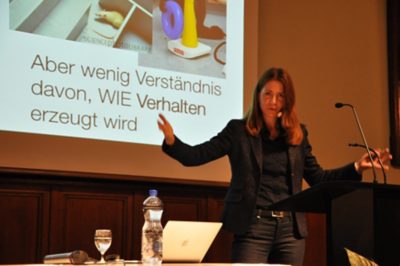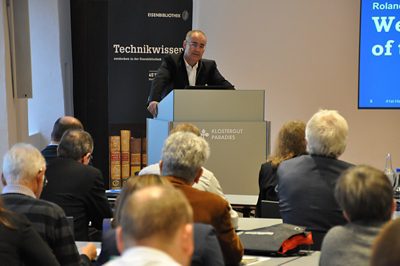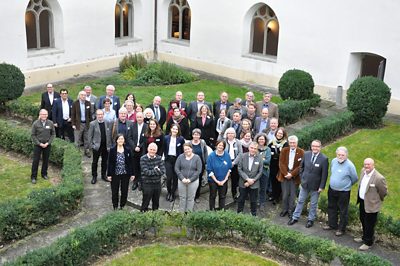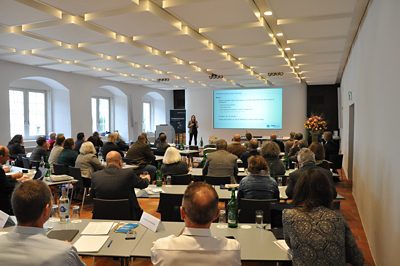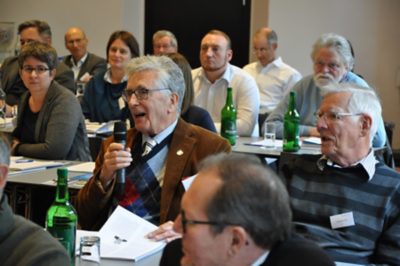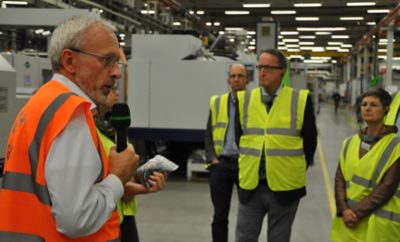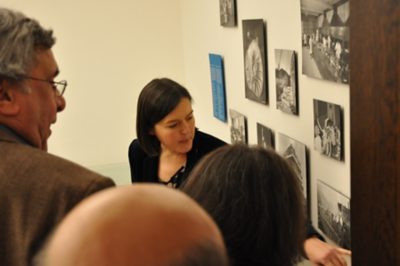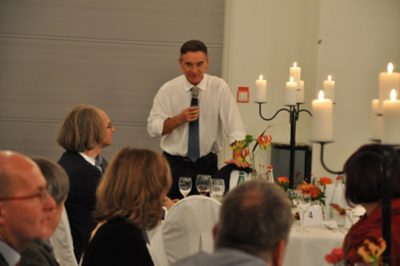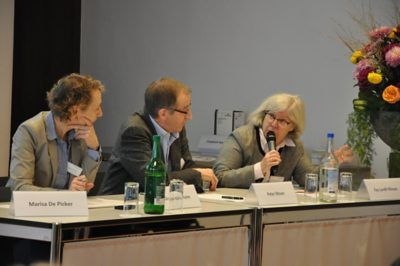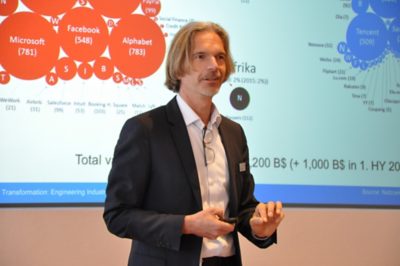Technology’s workforce. Inventing, operating and learning technology throughout history
16 and 17 November 2018, Schaffhausen/Schlatt, Switzerland
On November 16 and 17, the Iron Library held the 41st Conference on the History of Technology. This year, 60 participants from 8 different countries travelled to Schaffhausen to partake in the conference. The conference topic was “technology’s workforce”.
On Thursday evening, the participants were welcomed with a premier. Instead of the usual optional dinner, the participants were invited to attend the speech of Yulia Sandarmiskaya (ETH Zürich) on the topic of artificial intelligence. This public event was organized by the Lecture Group Schaffhausen. Afterwards, all listeners were invited to an apéro riche at the Kronenhof.
The official opening of the conference by Roland Gröbli, Corporate Secretary of Georg Fischer Ltd and Chairman of the Governing Board of the Iron Library Foundation, was held on Friday morning. Over the next two days, the 14 speakers presented the audience with a wide range of perspectives on the topic of “technology’s workforce”. Olaf Schmidt-Rutsch (Dortmund) lectured about the “Industrial Labor Memory Archive” of the LWL Industrial museum and showed how historical witnesses remembered various industrial activities and how different these memories could be. Gerhard Dohrn-van Rossum (Chemnitz) talked about the knowledge transfer that occurred between medieval scholars and technical experts such as clockmakers. Serenity Sutherland (Oswego) on the other hand drew attention to the role of gender and its influence on the composition of technology’s workforce with her talk about the first female students at MIT.
Here too a premier took place. One of the speakers - Marisa De Picker (Leuven) – could not participate at the conference in person due to medical reasons. Without further ado a live video conference to her living room in Belgium was set up. In this way, the participants were able to benefit from an exciting presentation on the reintegration of wounded Belgian soldiers to the labor force with the help of prostheses.
In his concluding presentation, Andreas Rauch from GF Machining Solutions showed how companies must stay on the ball in today's digital age. The conference program was enriched by a factory tour through the facilities of GF Piping Systems in Schaffhausen.
The different approaches of the speakers revealed the breath of the topic and Marcus Popplow stressed this point in his closing remarks by suggesting that technology’s workforce deserved their own field of study.
